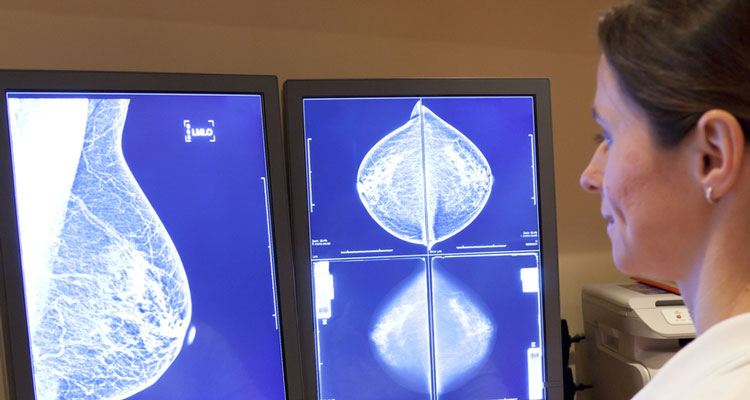
Mammography Screening
What is a mammogram?
Mammography screening is the best method for finding breast cancer in its earliest stages, when cure rates are the highest. It can reveal small tumors up to two years before you or your doctor can feel them during a breast exam. If a tumor or other issue is detected, you may also need a diagnostic mammogram or other breast-imaging to pinpoint the cause.
At The Imaging Center, our skilled technologists have advanced training in breast imaging and are certified in mammography. We are accredited by the American College of Radiology.
We use advanced digital mammography to produce images on a high resolution computer monitor. Because the technologist can view these images immediately, we’re able to reduce the amount of time you spend in the imaging suite and lessen the need for retakes. And these images can be brightened and magnified to highlight specific areas for further examination.
We offer screening mammograms:
- Screening mammograms help us find unsuspected changes in your breast tissue
These tests use low-level X-rays, which are the best screening methods for the detection of abnormalities in your breasts.
The American Cancer Society recommends that all women age 40 and older have annual screening mammograms to detect breast cancer, even when no symptoms are present.
For your safety
Tell your physician or the technologist performing the exam if there is any possibility that you are pregnant. Your doctor may postpone the exam to reduce the possible risk of exposing your baby to radiation.
Preparing for a mammogram
- Do not use deodorant, powder or lotion under your arms or on your breasts before having a mammogram
- Wear a blouse or top that is easy to remove
- You will be asked to complete a series of questions about your medical history
- Tell your technologist if you have breast implants
What to expect during a mammogram
During your mammogram, your breasts will be gently but firmly compressed to provide a clear picture. This can be uncomfortable for some patients, but the test does not last very long. After your mammogram you may have some skin discoloration due to the compression. This is temporary and normal.
Results
A radiologist will review your exam images and report the findings to your doctor. Your doctor will then discuss the findings and next steps with you.
